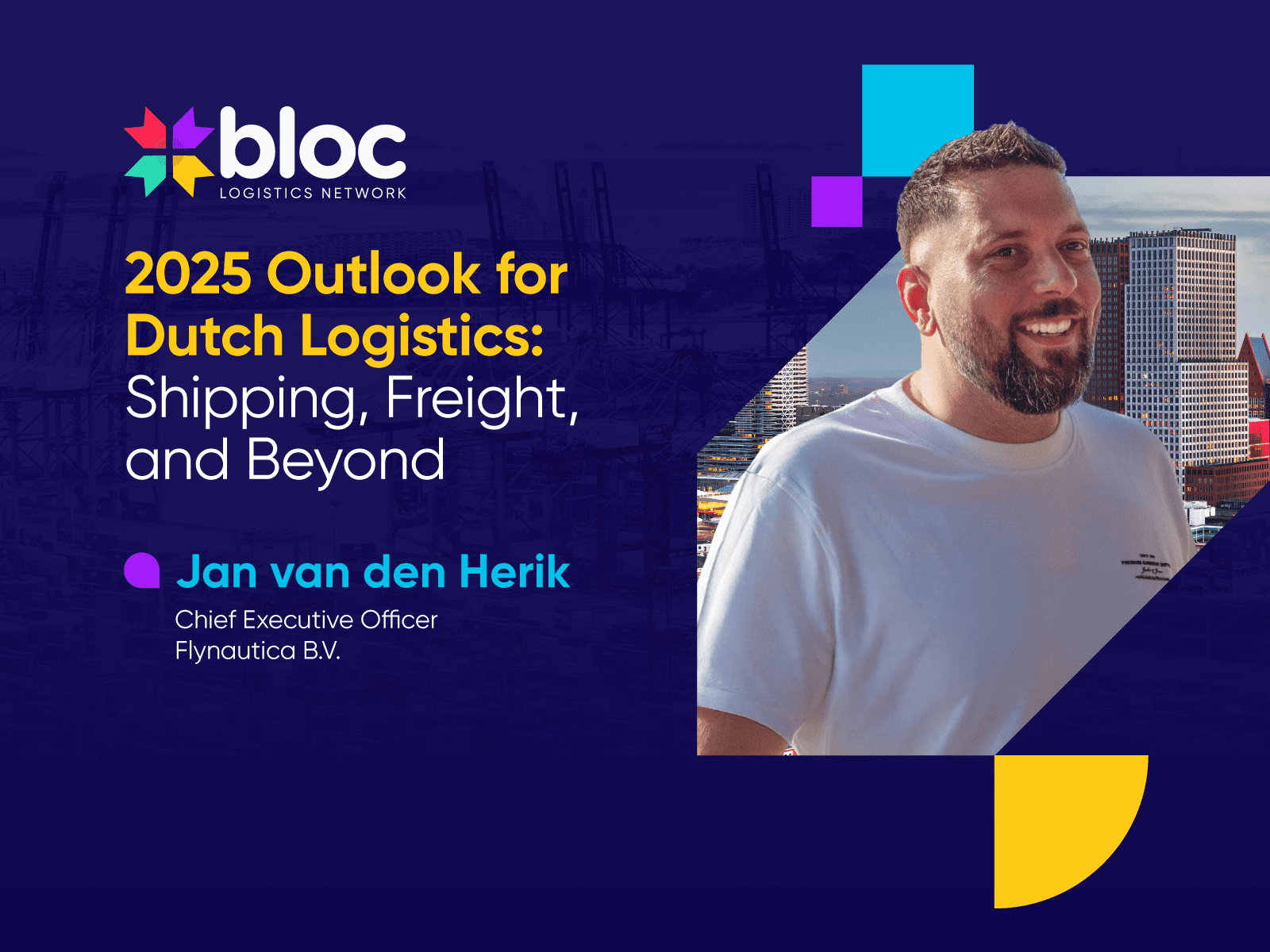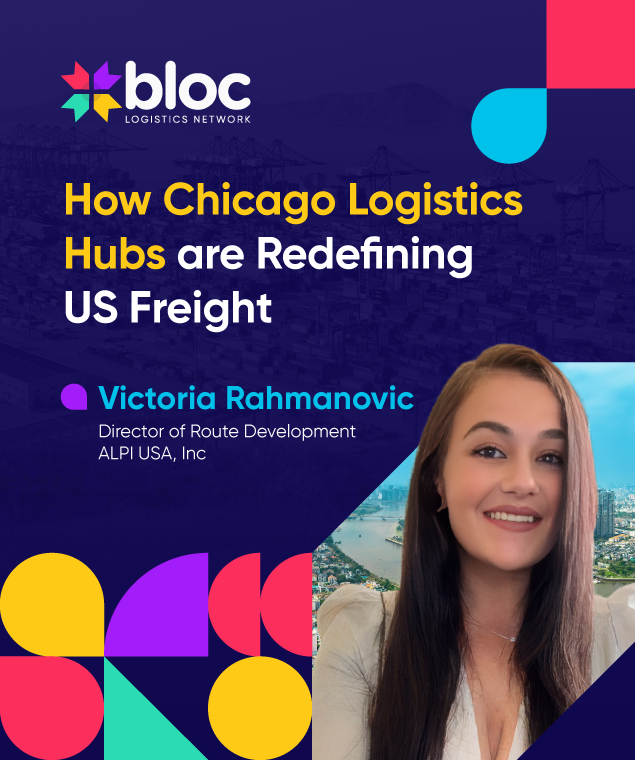By Jan van den Herik, Group CEO of Flynautica B.V., The Netherlands
The Netherlands maintains its position as Europe’s premier logistics hub through strategic advantages that continue to drive sustainable growth. Contributing 9% to the nation’s GDP, the logistics sector shows strong resilience while adapting to global trade changes and new technology.
This detailed analysis looks at the factors driving Netherlands logistics growth and the challenges that shape the industry’s future path.

Strategic Infrastructure Drives Netherlands Logistics Growth
The Port of Rotterdam stands as the core of Dutch logistics strength and reinforces the country’s role as the “Gateway to Europe”, projected to handle 16.65 million TEU in 2025. This facility works as more than just a port—it functions as a key connection point linking global supply chains with European markets. The port’s recent investments in gate systems and scanning technology have cut cargo clearance times by a lot, particularly helping perishable exports.
Schiphol Airport in Amsterdam adds to Rotterdam’s logistics transport leadership with strong air cargo performance. Flight operations grew 7% in 2024, though a proposed cap of 485,000 flights may limit future growth. Despite this limit, Schiphol continues to serve as an important gateway for high-value goods including pharmaceuticals and electronics.
The Dutch government’s active approach to building infrastructure creates more opportunities for growth. The Ministry of Defence has put out requests for logistics services, including transportation and moving operations, opening new income sources for local providers. These government contracts often involve long-term agreements that provide stable revenue while helping companies build expertise in specialized logistics areas.
Digital Transformation Accelerates Market Performance
Technology use represents a key driver of Netherlands logistics growth. Dutch companies use IoT sensors, artificial intelligence, and real-time tracking systems to improve how they work. These digital platforms enable automatic paperwork, smart dashboards, and clear communication throughout the supply chain.
The smart shipping containers market shows this technology change. Global predictions show this sector will reach USD 8.0 billion by 2034, with the Netherlands playing a central role due to its advanced port infrastructure. Companies like DHL and Kuehne + Nagel use these innovations to provide complete freight management solutions.
Digital freight forwarding platforms change how businesses access logistics services. FreightAmigo and similar platforms enable real-time rate comparisons and automatic processes, making professional logistics services available to smaller businesses. This opening up of advanced logistics capabilities expands market participation and drives overall sector growth.
E-Commerce Expansion Fuels Netherlands Logistics Growth
Online retail represents a significant growth catalyst for Dutch logistics operations. With 84% internet usage for online shopping and projected e-commerce revenue of US$37.89 billion in 2025, demand for last-mile delivery services continues to expand. User penetration rates of 71.3% indicate substantial market maturity and continued growth potential.
Cross-border e-commerce particularly benefits from the Netherlands’ position as the gateway to Europe. The country’s advanced customs clearance capabilities and multimodal transportation networks facilitate efficient international shipments. This positioning attracts e-commerce companies seeking reliable European distribution hubs.
The freight forwarding market responds directly to e-commerce growth, with global projections showing a 5.0% CAGR from 2025 to 2032. Dutch forwarders capitalize on this trend by offering specialized services for online retailers, including inventory management and flexible shipping options.
Sustainability Initiatives Shape Industry Evolution
Environmental responsibility drives significant changes in Dutch logistics operations. Thirty major cities have committed to zero-emission deliveries by 2025, creating both challenges and opportunities for logistics providers. This commitment requires substantial investment in electric vehicles and alternative fuel technologies.
The Port of Rotterdam leads sustainability efforts through automation and eco-friendly practices. Electric propulsion systems gain traction for short-sea and inland waterway transport, aligning with EU decarbonization objectives. These initiatives position Dutch logistics companies as leaders in sustainable transportation solutions.
Warehouse automation contributes to both efficiency and environmental goals. Automated guided vehicles (AGVs) and robotic systems reduce energy consumption while improving productivity. These investments demonstrate how sustainability and profitability can align in modern logistics operations.
Challenges Impacting Netherlands Logistics Growth
Despite strong basics, the Dutch logistics sector faces major challenges. Political tensions, particularly conflicts in the Middle East, have increased freight rates and fuel costs. These outside pressures affect profits and planning for Dutch shipping companies.
Capacity constraints on highways and railroads create bottlenecks that push costs higher. Increased demand for expedited shipping of high-value goods exacerbates these limitations. Infrastructure investment remains critical to maintaining competitive advantage as trade volumes grow.
The proposed flight restrictions at Schiphol Airport represent a specific challenge for air cargo operations. While current growth trends remain positive, long-term capacity limitations may redirect some traffic to competing European airports.
Global Networks Strengthen Competitive Position
International logistics companies recognize the Netherlands’ strategic value and maintain significant operations in the country. DB Schenker, Kuehne + Nagel, and DHL utilize Dutch infrastructure to serve European markets efficiently. Their presence validates the country’s position as a logistics hub while providing expertise and investment.
Multimodal transportation capabilities distinguish Dutch logistics providers from competitors. The integration of sea, air, and land transport modes offers cost-effective and sustainable solutions for complex shipping requirements. This capability becomes increasingly valuable as companies seek to reduce environmental impact while maintaining service quality.
For companies operating within a global logistics network, the Netherlands offers unparalleled access to European markets. Members of networks like Bloc Logistics Network benefit from established relationships with Dutch freight forwarders and logistics providers. These connections facilitate efficient cargo movement and provide access to specialized services that enhance competitive positioning.
Technology Integration Transforms Operations
Advanced cargo handling systems continue to evolve at Dutch ports and distribution centers. Automated cranes and sophisticated tracking systems reduce processing times while improving accuracy. These investments support higher throughput volumes without proportional increases in labor costs.
Real-time visibility platforms enable supply chain transparency that modern customers expect. Shippers can track cargo movement from origin to destination, with automated notifications for delays or route changes. This transparency builds trust and reduces customer service requirements.
Customs clearance services benefit from technological advancement as well. Logistics providers in the region offer automated import/export clearance and brokerage services, helping clients navigate complex regulations including the new ICS2 requirements. These services become increasingly valuable as international trade regulations evolve.
Future Outlook for Netherlands Logistics Growth
Market projections indicate continued expansion for Dutch logistics operations. The freight forwarding sector shows particular promise, driven by e-commerce growth and digital transformation. Companies that invest in technology and sustainability will likely capture disproportionate market share.
Infrastructure development remains a priority for maintaining competitive advantage. Continued investment in port facilities, transportation networks, and digital systems will determine the Netherlands’ ability to serve growing trade volumes efficiently.
The integration of artificial intelligence and machine learning will further transform logistics operations. Predictive analytics for demand forecasting, route optimization, and maintenance scheduling will improve efficiency while reducing costs. Dutch companies that adopt these technologies early will establish competitive advantages.
The Path Forward for Dutch Logistics Leadership
Netherlands logistics growth reflects the sector’s strong basics and ability to adapt. Key location advantages, combined with ongoing infrastructure investment and technology use, position the country for continued success. While challenges exist, particularly regarding capacity limits and political tensions, the overall direction remains positive.
The industry’s commitment to sustainability and digital transformation addresses long-term market requirements while maintaining operational efficiency. For logistics professionals and freight forwarders, the Netherlands offers a stable, technologically advanced environment for business growth and international expansion.
Companies operating within established networks can leverage these advantages more effectively through shared resources and expertise. The combination of individual company capabilities and network strength creates powerful competitive advantages in the global logistics market.

Article by Jan van den Herik
Group CEO,
Flynautica B.V., The Netherlands, a member of Bloc Logistics Network
Flynautica B.V. is a global freight forwarder delivering secure, transparent, and cost-effective logistics with innovation at its core. Leveraging decades of expertise, Flynautica provides tailored solutions across air, sea, and road freight, as well as customs clearance, warehousing, project cargo, dangerous goods, perishables, and personal effects. Combining cutting-edge technology with a human touch, the company breaks down borders, streamlines trade, and builds lasting relationships—offering flexible, dedicated service that keeps global supply chains moving efficiently.
Bloc Logistics Network is a global platform that connects logistics professionals to share opportunities and collaborate without barriers. Bloc aims to level the playing field by creating an accessible, supportive environment where professionalism and collaboration drive real results. It serves as an ecosystem designed for mutual advancement, ensuring growth, efficiency, and success across the logistics industry.





